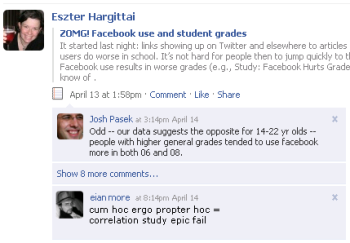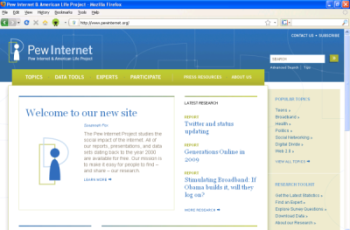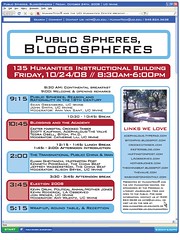[UPDATE: An email from Director of Strategic Communication at Amazon, Craig Berman states the following (quoted with permission), which I thought was important to note here: “Amazon is a marketplace of many sellers, and while sellers are free to set their own prices for items they list, every customer pays the same for every individual offer.†I’m happy to hear that there is no price discrimination per se. I stand by my concerns though and consider Prime Shipping a shady product. I don’t recommend enrolling in it.]
 Amazon is quoting me a higher price than it’s quoting my friend, on the same product. I knew this was theoretically possible, of course, but I didn’t realize online stores engaged in these practices much these days. After all, is it really worth annoying customers when they find out? After a bit of experimentation, it seems to me that what’s going on here is that those with a Prime membership are being quoted a higher price. Ouch. So the thanks I get for paying for the Prime membership and shopping at Amazon a lot is higher prices. No thank you.
Amazon is quoting me a higher price than it’s quoting my friend, on the same product. I knew this was theoretically possible, of course, but I didn’t realize online stores engaged in these practices much these days. After all, is it really worth annoying customers when they find out? After a bit of experimentation, it seems to me that what’s going on here is that those with a Prime membership are being quoted a higher price. Ouch. So the thanks I get for paying for the Prime membership and shopping at Amazon a lot is higher prices. No thank you.
I was about to buy a Canon Digital Rebel XSi and some lenses (in sum, a $1K+ purchase) when I saw the link to an 8GB storage unit (the Transcend 8 GB SDHC Class 6 Flash Memory Card TS8GSDHC6) and decided to check it out given the size of photos I may be taking with a 12 MP camera. I clicked on the link and saw that the card cost $10 plus change (I have no screenshot of this as I didn’t realize I’d want one later). I then clicked on Add to Shopping Cart at which point I realized that I was logged on under a friend’s account who’d been using my computer earlier in the day. I logged out and logged back in using my own account. I went back to the same product’s page and noticed that the unit was now $17.13. (See screenshot here.) That’s annoying, after all, who likes to be charged 70% more than others? I logged out and did a search for the product without being signed on at all. Now the product came out costing $14.14 (screenshot). I logged back on using my own account to see what I would get now, and back I was at $17.13.
I have another Amazon account for other purposes so I decided to see how that would be treated. That account was quoted $14.14. The account I had tried first is the one I use the most. It is a Prime account. Prime means that for a payment of $79 a year, I get unlimited 2-day shipping on items that are eligible for it (which includes quite a few items). It also means that I have an incentive to shop at Amazon, because 2-day shipping is included on many things so I don’t have to worry about additional shipping costs.
As I was looking around the site for an explanation of the different prices – I found none, shocking, I know – I learned that it was possible to share my Prime membership with other members of my household. I decided to share the membership with my other account to test whether it was the Prime membership that was giving me the higher price quote. Indeed. Once I signed up for Prime with my second account, that account was now also being quoted $17.13 for the item.
When I initially sat down to use Amazon, I was going to spend well over $1,000. I walked away spending nothing. Additionally, I have no intention of continuing my Prime membership (I disabled the auto-renewal for it immediately), unless I get some explanation and the chance to buy items at prices others are being offered them. I sent Customer Service three notes already, but nothing helpful has come back so far. (The first response was outright offensive as the person either didn’t read or completely misunderstood the point of my email and sent back a canned response having nothing to do with my situation. I resent the query with what I hoped was a clearer explanation of the situation and still didn’t get anything addressing the question. I am waiting for the third response, but not holding my breath. Really, what I’m waiting for is for someone to tweak my account so I’m being charged what others are.) Of course, by not renewing my Prime membership, I’ll have much less incentive to shop at Amazon period (after this experience, it certainly won’t be the first place I go to look for things anyway). I guess most Prime members probably don’t realize this is going on or they don’t care about the differential so perhaps this practice doesn’t matter in the grand scheme of things. But it matters to me, more on principle than based on the $3 differential (although 21% could amount to a lot depending on the price) .
I’m curious to know what price quote others get on that product when they log on. If you’re a Prime member, do you see $17.13? If not, do you get $14.14 or less? Do you have other examples of such differentiated pricing at Amazon based on user account?
By the way, to read about the practices going on here, I recommend Joe Turow’s book on Breaking Up America. (No, of course that’s not a link to an Amazon page, I don’t plan on supplying those here anymore, not unless this gets cleared up.)

 Following up on
Following up on  I haven’t exactly been
I haven’t exactly been 



